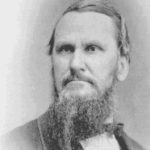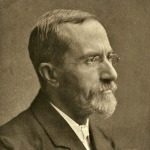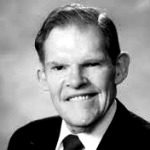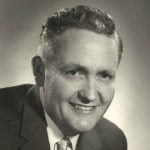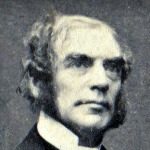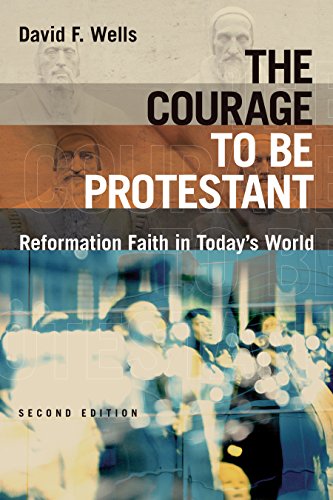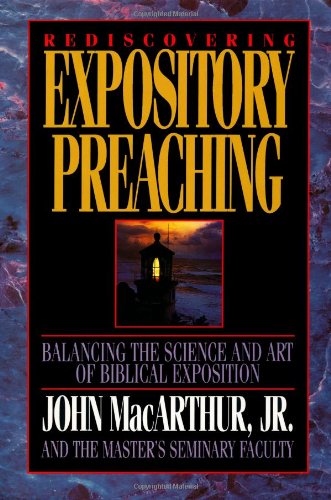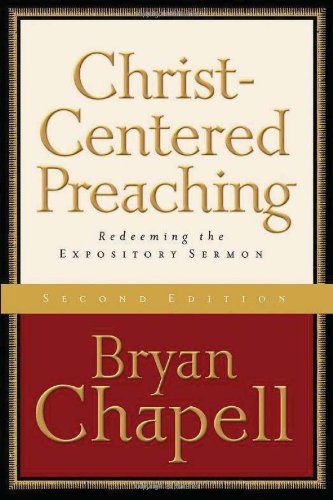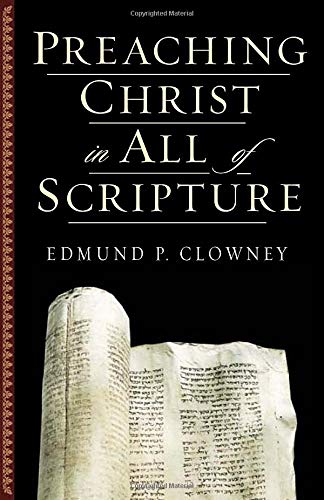Quotes about Preaching-Effectiveness
Truth renews the mind. Indeed, the truth which would affect the heart, which moves the heart, which changes the heart, must first enter through the vestibule of the mind if it would enter the sanctuary of the heart. The intention of truth preached is to affect the emotions and the will and the heart and the whole of our humanity…and thus preaching must come first through the mind. It makes its appeal through the mind; it enters through the mind – but it doesn’t simply stop with the mind.
One proud, surly, lordly word, one needless contention, one covetous action may cut the throat of many a sermon, and blast the fruit of all that you have been doing.
Take heed to yourselves, lest your example contradict your doctrine…lest you unsay with your lives what you say with your tongues, and be the greatest hinderers of the success of your own labors.
Content not yourselves with being in a state of grace, but be also careful that your graces are kept in vigorous and lively exercise, and that you preach to yourselves the sermons which you study, before you preach them to others.
When your minds are in a holy, heavenly frame, your people are likely to partake of the fruits of it. Your prayers, and praises, and doctrine will be sweet and heavenly to them. They will likely feel when you have been much with God: that which is most on your hearts, is like to be most in their ears.
What skill doth every part of our work require! – and of how much moment is every part! To preach a sermon, I think, is not the hardest part; and yet what skill is necessary to make the truth plain; to convince the hearers, to let irresistible light in to their consciences, and to keep it there, and drive all home; to screw the truth into their minds, and work Christ into their affections; to meet every objection, and clearly to resolve it; to drive sinners to a stand, and make them see that there is no hope, but that they must unavoidably either be converted or condemned – and to do all this, as regards language and manner, as beseems our work, and yet as is most suitable to the capacities of our hearers. This, and a great deal more that should be done in every sermon, must surely require a great deal of holy skill.
So great a God, whose message we deliver, should be honored by our delivery of it. It is a lamentable case, that in a message from the God of heaven, of everlasting moment to the souls of men, we should behave ourselves so weakly, so unhandsomely, so imprudently, or so slightly, that the whole business should miscarry in our hands, and God should be dishonored, and His work disgraced, and sinners rather hardened than converted; and all this through our weakness or neglect!
And thus doth pride make many a man’s sermons; and what pride makes, the devil makes; and what sermons the devil will make and to what end, we may easily conjecture. Though the matter be of God, yet if the dress, and manner, and end be from Satan, we have no great reason to expect success.
What! speak coldly for God, and for men’s salvation Can we believe that our people must be converted or condemned, and yet speak in a drowsy tone? In the name of God, brethren, labor to awaken your own hearts, before you go to the pulpit, that you may be fit to awaken the hearts of sinners. Remember they must be awakened or damned, and that a sleepy preacher will hardly awaken drowsy sinners. Though you give the holy things of God the highest praises in words, yet, if you do it coldly, you will seem by your manner to unsay what you said in the matter… It is only here and there, even among good ministers, that we find one who has an earnest, persuasive, powerful way of speaking, that the people can feel him preach when they hear him.
You cannot break men’s hearts by jesting with them, or telling them a smooth tale, or pronouncing a gaudy oration. Men will not cast away their dearest pleasures at the drowsy request of one that seems not to mean as he speaks, or to care much whether his request be granted or not. If you say that the work is God’s, and He may do it by the weakest means, I answer, It is true, He may do so; but yet His ordinary way is to work by means, and to make not only the matter that is preached, but also the manner of preaching instrumental to the work.
Experience has fully proved that works of charity do most powerfully remove prejudice, and open the heart to words of piety. If men see that you are addicted to do good, they will the more easily believe that you are good, and that it is good which you persuade them to. When they see that you love them, and seek their good, they will the more easily trust you. And when they see that you seek not the things of the world, they will the less suspect your intentions, and the more easily be drawn by you to seek that which you seek.
How can you speak of life and death with such a heart? How can you preach of heaven and hell in such a careless, sleepy manner? Do you believe what you say? Are you in earnest or in jest? How can you tell people that sin is such a thing, and that so much misery is upon them and before them, and be no more affected with it? Should you not weep over such a people, and should not your tears interrupt your words? Should not you cry aloud, and show them their transgressions, and entreat and beseech them as for life and death?
A sermon full of mere words, how neatly so ever it is composed, while it wants the light of evidence, and the life of zeal, is but an image or a well-dressed carcass.
The first heart God’s Word needs to reach is that of the preacher. There will be no benefit to our people from expository preaching unless we ourselves are being impacted by the Scripture we are preparing to preach. It is imperative, when we are dealing with the biblical text, that we are personally changed by it.
Preaching for God’s Glory, Crossway, 1999, p. 34. Get this book!
One of the reasons for the disinterest in expository preaching is surely that so many attempts at it prove lifeless, dull, and even thoroughly boring. I never cease to be amazed by the ingenuity of those who are capable of taking the powerful, life-changing text of Scripture and communicating it with all the passion of someone reading aloud from the Yellow Pages!
Preaching for God’s Glory, Crossway, 1999, p. 22. Get this book!
James Stewart used to say, “Be yourself, but also, forget yourself!” Self-forgetfulness is of vital importance. We cannot make much of ourselves and much of the Lord Jesus Christ simultaneously. If people leave worship saying, “What an amazing preacher!” we have failed. Instead we must long for them to say, “What a great God, and what a privilege it is to meet Him in His Word, as we have just done.”
Every sermon must have a solid rest in Scripture, and the pointedness which comes of a clear subject, and the conviction which belongs to well-thought argument, and the warmth that proceeds from earnest appeal.
The lives of ministers oftentimes convince more strongly than their words; their tongues may persuade, but their lives command.
While exegesis risks becoming a discipline removed from the demands of the pulpit, so homiletics cannot separate itself from hermeneutics. That would power the pulpit by personal inspiration instead of by historical, critical study of the Bible. Hermeneutics and homiletics must remain wed.
Our forebears back in the camp meeting days used to say that if people left a meeting talking about what a wonderful sermon the preacher gave or how beautifully the singers sang, the meeting had failed. But if people went home saying thing like "Isn’t God good? He met me tonight in such a wonderful way," it was a good meeting. There was to be no sharing the stage with the Lord.
I believe the problem you are having is this: You are attempting to remove ideas cogently out of your own head, where you should be attempting to screw them into mine.
If you would make others feel, you must feel yourself… The heavenly flame must be kindled first in your own bosom, that by this law of sympathy it may radiate thence into the souls of your hearers.
Quoted by Curtis C. Thomas, Practical Wisdom for Pastors, Crossway Books, 2001, p. 241.
No one who saw Paul’s ministry and looked at a preacher like Paul could dream that the explanation lay in him. Not in an ugly little Jew without presence, without eloquence, without the means to bribe or to compel could the source of such courage, the cause of such transformation, be found. It must be sought not in him, but in God.
Preaching to the heart addresses the understanding first, in order to instruct it; but in doing so it also reaches through the mind to inform, rebuke, and cleanse the conscience. It then touches the will in order to reform and transform life and equip the saints for the work of ministry (Ephesians 4:12).
In the last analysis, this is what preaching to the heart is intended to produce: inner prostration of the hearts of our listeners through a consciousness of the presence and the glory of God. This distinguishes authentic biblical, expository preaching from any cheap substitute for it; it marks the difference between preaching about the Word of God and preaching the Word of God.
In its attempt to win a hearing, the contemporary pulpit has been guilty of depriving our generation of lasting joy. They have had the responsibility of feeding the people craving for solid meat, but perhaps not realizing what they are craving for, they have kept feeding them dessert. It may have given the people instant satisfaction, but it has left them unhealthy and not really able to be salt and light for Christ in this world.
Our works don’t replace the verbal preaching of the gospel, but in them we demonstrate, tangibly, the love and grace that we proclaim with our mouths. Effective gospel preaching is explaining with our words what we demonstrate with our lives. In our service, we make visible the invisible Christ.
Unholiness in a preacher’s life will either stop his mouth from reproving, or the people’s ears from receiving.
Some preachers ought to put more fire into their sermons or more sermons into the fire.
Quoted by Curtis C. Thomas, Practical Wisdom for Pastors, Crossway Books, 2001, p. 79.
The devil will let a man prepare a sermon if that will keep him from preparing himself.
Don’t miss this point! The success of the messenger, the herald, is that after the message is delivered, the audience remembers it, not merely as the sound of the messenger, but as the message of the Lord.
Appointed to Preach, Christian Focus Publications, 1999, p. 29. Get this book!
But it is far more common for the evangelical preacher to edit God’s Word: 1. By removing the text from its context, and using it to say what-ever the preacher likes, 2. By moralizing the text, so that it is reduced to an ethical maxim that fits any religion, 3. By using the text to promote hobby-horses, and 4. By dogmatic insistence that the text says things it does not truly say. This homiletical hocus-pocus has subtle roots such as the desire to be clever and popular or synthetically relevant or intellectually respectable or to make the gospel more acceptable. But most often God’s Word gets watered down by the preacher’s laziness. He simply will not do the hard work to engage and preach a text in its context.
Doing Ministry by Kent Hughes taken from 2 Corinthians by Kent Hughes, copyright 2006, Crossway Books, a division of Good News Publishers, Wheaton Illinois 60187, www.crosswaybooks.org, p. 84.
Preachers must preach for conviction and change. No one ought ever to leave a sermon without having a very real sense that there is something in their lives they need to do something about.
That is what preaching [the Bible] is meant to do. It addresses us in such a manner as to bring us under judgment; and it deals with us in such a way that we feel our whole life is involved, and we go out saying, “I can never go back and live just as I did before. This has done something to me; it has made a difference to me. I am a different person as the result of listening to this.”
Preachers and Preaching, Zondervan, 1971, p. 56. Get this book!
Avoid cleverness and smartness. The people will detect this, and they will get the impression that you are more interested in yourself and your cleverness than in the truth of God and their souls.
Preaching and Preachers, Zondervan, 1972, p. 209. Get this book!
It is not necessary for a preacher to express all his thoughts in one sermon. A preacher should have three principles: first, to make a good beginning, and not spend time with many words before coming to the point; secondly, to say that which belongs to the subject in chief, and avoid strange and foreign thoughts; thirdly, to stop at the proper time.
A good preacher should have these qualities and virtues:
1. He should teach systematically.
2. He should have a ready wit.
3. He should be eloquent.
4. He should have a good voice.
5. He should have a good memory.
6. He should know when to stop.
7. He should be sure of his doctrine.
8. He should go out and grapple with body and blood, wealth and honor, in the world.
9. He should let himself be mocked and jeered at by everybody.
By using frail, fallible people, God makes it clear that the power lies not in the human messenger but in the divine message. God’s power transcends the limitations of the “clay pot.” And it is precisely those limitations that allow Christians to experience the greatest demonstration of God’s power.
If you want to be used mightily by God, get yourself out of it. Learn to see yourself (in the words of Paul) as a garbage pail, or, in the words of Peter, clothe yourself with humility. It’s not you; it’s not your personality; it’s the Word of God. He doesn’t need the intellectuals. He doesn’t need great people, fancy people, or famous people. Because the people aren’t the power. The power is the message! “That the surpassing greatness of the power may be of God and not from ourselves” (2 Corinthians 4:7).
The only person who can truly speak and minister for God is one who has been in God’s presence; and the only person who can come into God’s presence is one who is inwardly as well as outwardly righteous.
The shepherd’s ability to faithfully feed his flock depends on how well he’s feeding himself.
Legalism involves seeking forgiveness from God, justification before God, and acceptance by God through obedience to God. Legalism is substituting, in essence, my works for Jesus’ finished work. Legalism is self-atonement and the height of arrogance. It’s living as if the cross of Christ was unnecessary or insufficient.
Pastoral Leadership for Manhood and Womanhood, ed. Wayne Grudem and Dennis Rainey, Crossway, 2002, p. 193.
Study universal holiness of life. Your whole usefulness depends on this, for your sermons last but an hour or two: your life preaches all week. If Satan can only make a covetous minister a lover of praise, of pleasure, of good eating, he has ruined your ministry. Give yourself to prayer, and get your texts, your thoughts, your words, from God.
The three essentials for great preaching are: truth, clarity, and passion.
There is a tale told of that great English actor Macready. An eminent preacher once said to him: “I wish you would explain to me something.” “Well, what is it? I don’t know that I can explain anything to a preacher.” “What is the reason for the difference between you and me? You are appearing before crowds night after night with fiction, and the crowds come wherever you go. I am preaching the essential and unchangeable truth, and I am not getting any crowd at all.” Macready’s answer was this: “This is quite simple. I can tell you the difference between us. I present my fiction as though it were truth; you present your truth as though it were fiction.”
If the preacher strives to speak according to the rules of this world, he may please many, particularly those who have a literary taste. But he is less likely to become an instrument in the hands of God for the conversion of sinners or for the building up of the saints. Neither eloquence nor depth of thought makes a truly great preacher. Only a life of prayer and meditation will render him a vessel ready for the Master’s use and fit to be employed in the conversion of sinners and in the edification of the saints.
The Autobiography of George Muller, 1984, p. 35. All quotations taken from books published by Whitaker House are used with permission of the publisher. Whitaker House books are available at Christian bookstores everywhere. Get this book!
Simplicity in expression is of utmost importance. The teacher should speak so that even children and people who cannot read may be able to understand him, as far as the natural mind can comprehend the things of God. Every congregation has people of various educational and social backgrounds. The expounder of the truth of God speaks for God and for eternity. It is unlikely that he will benefit the hearers unless he uses plain speech.
The Autobiography of George Muller, 1984, p. 34. All quotations taken from books published by Whitaker House are used with permission of the publisher. Whitaker House books are available at Christian bookstores everywhere. Get this book!
Fear of offending those who pay his salary has kept many ministers from preaching the uncompromising Word of God.
The Autobiography of George Muller, 1984, p. 36. All quotations taken from books published by Whitaker House are used with permission of the publisher. Whitaker House books are available at Christian bookstores everywhere. Get this book!
A crucified Savior can be preached in divine power only by crucified preachers.
Pastoral Pensées: Power in Preaching: Decide (1 Corinthians 2:1-5), Themelios, April 2009. Used by Permission of Gospel Coalition.
A man can preach the word, but still the word is not in him. It has not yet become interior to him, experientialized to him, a part of him. Such preaching is mere wind. True preaching is brewed within, as the gospel enters into a man, floods his awareness, rearranges his own interiority, and surges out of him as something divine and yet still his own.
Unless the pulpit is the place where you are the humblest in giving God’s message, it is certain to be the place where you are vainest in giving your own (John Oman).
A sermon is not made with an eye upon the sermon, but with both eyes upon the people and all the heart upon God.
Quoted by Curtis C. Thomas, Practical Wisdom for Pastors, Crossway Books, 2001, p. 47.
A man preacheth that sermon only well unto others which preacheth itself in his own soul… If the word do not dwell with power in us, it will not pass with power from us.
The True Nature of a Gospel Church, in The Works of John Owen, ed. W. H. Goold, by permission Banner of Truth, Carlisle, PA.
I have never known anyone whose speech communicated such a sense of the reality of God as did the Doctor (Martin Lloyd-Jones) in those occasional moments of emphasis and doxology. Most of the time, however, it was clear, steady analysis, refection, correction and instruction, based on simple thoughts culled from the text, set out in good order with the minimum of extraneous illustration or decoration. He knew that God’s way to the heart is through the mind (he often insisted that the first thing the gospel does to a man is to make him think), and he preached in a way designed to help people think and thereby grasp truth – and in the process be grasped by it, and so be grasped by the God whose truth it is.
David Martyn Lloyd-Jones in Honouring the People of God, v. 4 of Collected Shorter Writings of J. I. Packer, Paternoster, 1999, p. 85.
Get this book!
Doctrinal preaching certainly bores the hypocrites; but it is only doctrinal preaching that will save Christ’s sheep.
I fear preaching in such a way that when people hear about God, they’ll want only to yawn.
Oh, what would the damned in hell give for a sermon, could they but listen once more! They would consent, if it were possible, to bear ten thousand years of hell’s torments, if they might but once more have the Word presented to them! If I had a congregation such as that would be, of men who have tasted the wrath of God, of men who know what an awful thing it is to fall into the hands of an angry God, how would they lean forward to catch every word.
We are told men ought not to preach without preparation. Granted. But, we add, men ought not to hear without preparation. Which, do you think, needs the most preparation, the sower or the ground? I would have the sower come with clean hands, but I would have the ground well-plowed and harrowed, well-turned over, and the clods broken before the seed comes in. It seems to me that there is more preparation needed by the ground than by the sower, more by the hearer than by the preacher.
I shall not attempt to teach a tiger the virtues of vegetarianism; but I shall as hopefully attempt that task as I would try to convince an unregenerate man of the truths revealed by God concerning sin, and righteousness and judgment to come. These spiritual truths are repugnant to carnal men, and the carnal mind cannot receive the things of God. Gospel truth is diametrically opposed to fallen nature; and if I have not a power much stronger than that which lies in moral suasion (persuasion), or in my own explanations and arguments, I have undertaken a task in which I am sure of defeat… Except the Lord endow us with power from on high, our labour must be in vain, and our hopes must end in disappointment.
You might as well expect to raise the dead by whispering in their ears, as hope to save souls by preaching to them, if it were not for the agency of the Spirit.
A sermon often does a man most good when it makes him most angry. Those people who walk down the aisles and say, “I will never hear that man again,” very often have an arrow rankling in their breast.
The preaching that kills may be, and often is, orthodox- dogmatically, inviolably orthodox. In the Christian system, unction is the anointing of the Holy Ghost, separating a person unto God’s work and preparing him for it. This unction is the one divine enablement by which the preacher accomplishes the peculiar and saving ends of preaching. Without this unction there are no true spiritual results accomplished. The results and forces in preaching do not rise above the results of unsanctified speech. Without unction the former is as potent as the pulpit…without the gospel has no more power to propagate itself than any other system of truth. This is the seal of its divinity. Unction in the preacher puts God in the gospel.
A man’s life is always more forcible than his speech. When men take stock of him they reckon his deeds as dollars and his words as pennies. If his life and doctrine disagree the mass of onlookers accept his practice and reject his preaching.
You cannot preach conviction of sin unless you have suffered it. You cannot preach repentance unless you have practiced it. You cannot preach faith unless you have exercised it. True preaching is artesian; it wells up from the great depths of the soul. If Christ has not made a well within us, there will be no outflow from us.
A man must have a stout digestion to feed upon some men’s theology; no sap, no sweetness, no life, but all stern accuracy, and fleshless definition. Proclaimed without tenderness, and argued without affection, the gospel from such men rather resembles a missile from a catapult than bread from a Father’s hand.
The best sermon is that in which the theme absorbs the preacher and hearers, and leaves no one either time or desire to think about the speaker.
We preachers cannot expect to communicate verbally from the pulpit if we visually out of it contradict ourselves.
Between Two Worlds, Eerdmans, 1882, p. 78. Get this book!
Ultimately, of course, the effectiveness of preaching is the work of the Spirit. The most expertly crafted and powerfully delivered sermon imaginable will accomplish nothing if He does not act to persuade and enable the hearer to respond to the truth. But at the same time, we must also remember that the Spirit does not act in a vacuum. Ordinarily, He uses means, and preaching which employs all the rhetorical devices within the preacher’s ability is one of those means.
Practical Wisdom for Pastors, Crossway Books, 2001, p. 244. Used by Permission. Get this book!
Think yourself empty, read yourself full, write yourself clear, pray yourself keen.
Preaching is more than the regurgitation of your favorite exegetical commentary, or a rather transparent recast of the sermons of your favorite preachers, or a reshaping of notes from one of your favorite seminary classes. It is bringing the transforming truths of the gospel of Jesus Christ from a passage that has been properly understood, cogently and practically applied, and delivered with the engaging tenderness and passion of a person who has been broken and restored by the very truths he stands up to communicate. You simply cannot do that without proper preparation, meditation, confession, and worship.
Mediocrity by Paul David Tripp taken from Dangerous Calling by Paul David Trip copyright 2012, Crossway Books, a division of Good News Publishers, Wheaton Illinois 60187, www.crosswaybooks.org, p. 145.
One thing that make the sermon compelling is that the preacher is worshiping his way through his own sermon.
Again and Again by Paul David Tripp taken from Dangerous Calling by Paul David Tripp copyright 2012, Crossway Books, a division of Good News Publishers, Wheaton Illinois 60187, www.crosswaybooks.org, p. 35.
It must be obvious that the most important ingredient of the minister’s sermon is his character.
Quoted by Curtis C. Thomas, Practical Wisdom for Pastors, Crossway Books, 2001, p. 193.
When love is felt, the message is heard.
Quoted by Curtis C. Thomas, Practical Wisdom for Pastors, Crossway Books, 2001, p. 65.
Give me one hundred preachers who fear nothing but sin and desire nothing but God, and I care not whether they be clergymen or laymen, they alone will shake the gates of hell and set up the kingdom of heaven upon earth.
Our desire is that the Holy Spirit, who is the Divine Revealer and Interpreter of Christ and His truth, may impart to your hearts a sober, spiritual and sanctifying receptivity of His Word – abasing self, and exalting Christ! Our intention is to unfold and illustrate the Lord Jesus Christ in the relation in which He stands to His people – to unveil His glory, beauty, and fullness – to define the close bond of union that unites to Him all His people – and to bring you into a more personal realization of what Christ is to you, and of what you are to Christ.
If you don’t spend time thinking about God, you won’t have much to say about God.
Everyday Talk, Talking Freely and Naturally about God with Your Children, Shepherd Press, 2004, p. 19, Used by Permission. Get this book!
Recommended Books








